Solving Split AC Indoor Unit Making Noise – Effective Tips & Troubleshooting
Ever been kept awake by the clatter of your split AC indoor unit making noise? It’s not just a nuisance—it’s also a cry for help from your AC! I’m John Parker, and with over two decades of experience in dealing with these issues, I’ve learned to decode these sounds. Each distinctive hum, clank or hiss is your AC’s way of communicating the trouble it’s in.
This guide will not only help you translate these noises but also equip you with practical solutions to hush them. Having spent my career knee-deep in AC units, I’ve gathered some insider knowledge to help you troubleshoot these issues without breaking a sweat.
So let’s bring back the silence (and sanity) to your home by putting a stop to that noisy AC, and ensuring efficient, hassle-free cooling. Ready to dive in?
Overview of Normal Split AC Indoor Unit Sounds
When your split AC indoor unit is making noise, it’s essential to know what sounds are normal. Understanding these common noises can help you identify potential issues before they become major problems.
Condensation Drainage
One noise you might hear from your split AC indoor unit is a dripping or trickling sound. This noise comes from condensation water draining out of the unit, typically when the AC cycles off. It’s like the sound of a garden hose trickling water. This sound is completely normal and means your unit is effectively managing moisture levels. So, whenever you hear this, be assured that your AC is doing its job well.
Fan Operation
Ever noticed a soft and consistent whirring coming from your split AC indoor unit? That’s the sound of normal fan operation. The fan circulates air throughout your space, which should be more of a background noise rather than something loud or disruptive. If the whirring gets too loud, it might be time to check it out. But under regular conditions, this noise indicates that the fan is running smoothly and efficiently.
Defrost Mode
You might hear gurgling sounds during the defrost cycle of your split AC indoor unit. This noise is the refrigerant moving to prevent frost build-up, especially in heat pump systems. It’s a routine sound that means your unit is staying frost-free and operating efficiently, particularly when it’s chilly outside.
Electrical Components
Clicking or buzzing noises during switching operations of capacitors, relays, and thermostats are also pretty common in split AC indoor units. These sounds come from the electrical components doing their job. Although these noises are typically harmless, if you notice persistent or unusual clicking or buzzing, it might be worth a closer look to ensure all is well with the electrical parts.
Common Noises from a Split AC Indoor Unit and Their Causes
When your split AC indoor unit is making noise, it’s like it’s trying to tell you something.
Knowing what those sounds mean can help you address problems before they escalate. Let’s break down the most common noises and what might be causing them.
Banging Noises
Loud and jarring, these noises often signal more severe issues.
Problem with the Compressor
If your split AC indoor unit makes a banging noise, it could indicate problems with the compressor. Often, this means the compressor might need replacement to prevent further damage.
Loose Parts Inside the Compressor
Banging noises may also be due to loose or disconnected parts inside the compressor. This results in a rattling sound. A professional should inspect and secure or replace the components as needed.
Screeching Sounds
High-pitched noises like these require immediate attention.
Malfunctioning Fan Motor in the Outdoor Condenser Unit
A screeching sound might indicate that the fan motor in the outdoor unit is failing.
Immediate professional repair is advisable to avoid a complete system failure.
Damaged Blower Fan Motor or Worn Fan Belt
Issues with the blower fan motor or a worn belt can cause screeching. Replacing the motor or belt is necessary to restore normal function.
Humming Noises
Frequently associated with electrical issues.
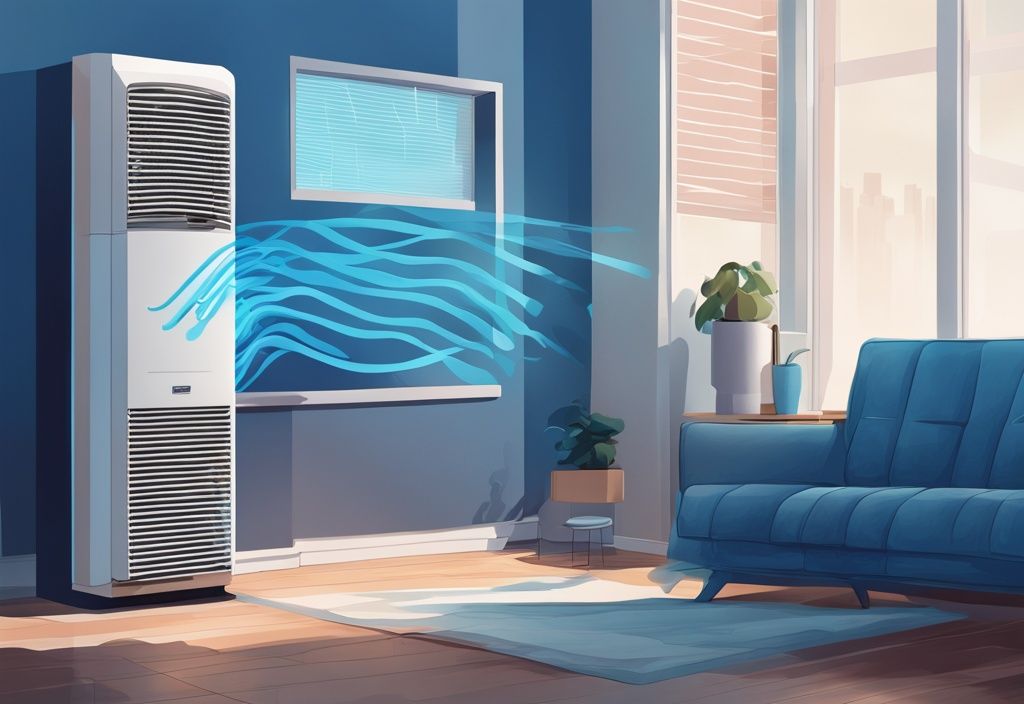
Defective Contactor Relay Switch
A persistent hum might be due to a defective contactor relay switch. Professional inspection is crucial to avoid potential damage to the AC unit.
Buzzing Sounds
This could indicate several potential issues that should be checked by a professional.
Loose or Unbalanced Fan Blades
Fan blades that are loose or unbalanced can create a buzzing noise. A technician needs to rebalance or secure them.
Faulty Outdoor Fan Motor
A buzzing sound can be produced by a faulty outdoor fan motor. Professional servicing is necessary to repair or replace the motor.
Dirty Condenser Coils
Accumulated dirt on the condenser coils can impede operation, causing buzzing. Regular cleaning is recommended to maintain efficiency.
Refrigerant Leak or Obstruction
Buzzing might indicate a refrigerant leak or obstruction near the copper lines. Immediate professional attention is required to prevent further issues.
Rattling Noises
Generally caused by loose or detached parts within or around the unit.
Debris in the Outdoor Condenser Unit
Loose materials such as sticks, dirt, or leaves can rattle inside the condenser. Cleaning out the debris should resolve the noise.
Damaged Electrical Contractor
A damaged electrical contractor within the unit can cause rattling noises. Professional repair is required to prevent further electrical damage.
Loose Fan Blades or Damaged Blower Wheel
Rattling due to loose fan blades or a damaged blower wheel should be inspected and addressed by either securing or replacing the faulty components.
Clicking Sounds
Persistent clicking may signal issues if it continues throughout the operation.
Malfunctioning Thermostat
Continuous clicking usually points to a malfunctioning thermostat. A professional technician should inspect and replace the thermostat if necessary.
Hissing Noises
These noises often indicate potential leaks or air handling issues.
Air Duct Leak or Malfunctioning Expansion Valve
Hissing could signal leaks in the air ducts or a faulty expansion valve. It needs inspection and repair to seal leaks or replace faulty components.
Refrigerant Leak or Incompatible Air Filter
A hissing noise can also indicate a refrigerant leak or an air filter that doesn’t fit correctly. Immediate professional attention is required to repair leaks or replace the filter.
Crackling/Rattling Sound
This metallic noise usually indicates something is loose.
Loose Bolts or Components
Loose bolts or other components within the unit can cause a crackling sound. Tightening or securing loose parts can solve the issue.
Damaged Fan or Motor
Damaged fan blades or motor components may also cause this noise. Ensure professional inspection for replacement or repair.
Bubbling Sounds
These noises are usually linked to drainage issues.
Excess Moisture Due to Drainage Issues
Excess moisture from a blockage or damage in the drainage pipe can cause bubbling. Inspection and potential replacement by a certified technician is recommended.
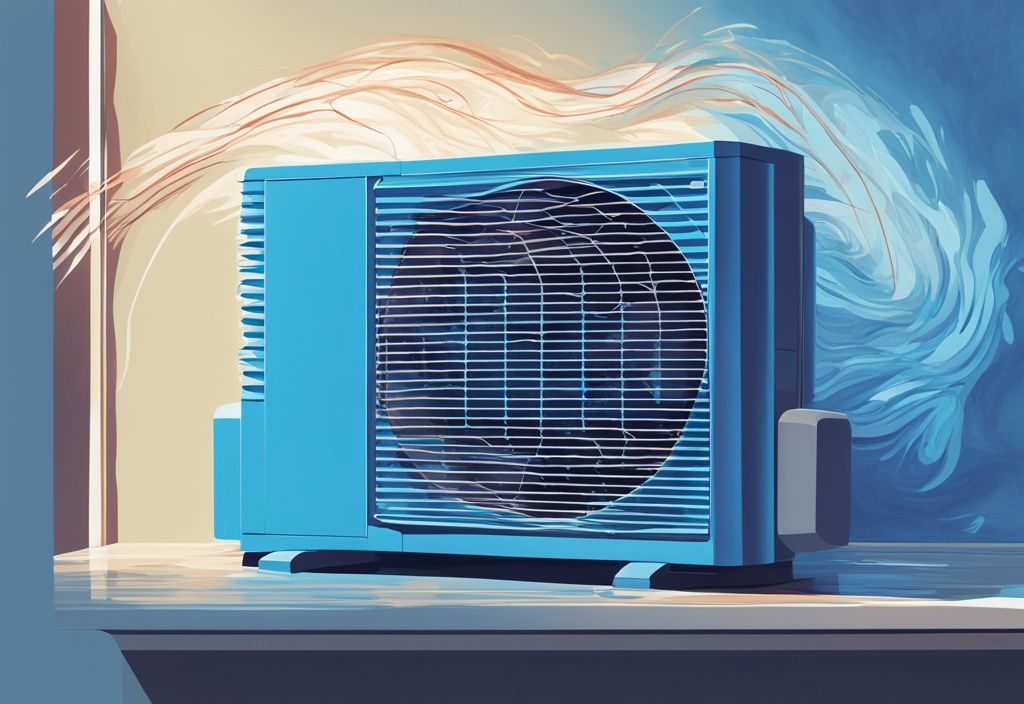
Electrical Humming/Buzzing Noise
Such noises typically point to issues with the compressor or electrical system in the outdoor unit.
Electrical Malfunction in the Outdoor Compressor
An abnormal number of electrical amps can cause humming or buzzing. This issue often requires a certified technician to diagnose and resolve it.
Potential Issues Causing Noise When the Split AC Unit is Off
When your split AC indoor unit is making a racket even though it’s switched off, a few common issues might be at play. Here’s a handy rundown of what could be going wrong and how to fix it.
Faulty Parts
Even when the split AC indoor unit is off, faulty parts like fans, valves, or compressors can cause noise. These parts may keep malfunctioning, resulting in rattles, clicks, or hums that can drive you nuts. To pinpoint and fix these issues, you’ll need a professional technician to take a closer look and either repair or replace the defective components.
Refrigerant Issues
Low or leaking refrigerant can be a sneaky culprit behind the noise coming from your split AC indoor unit when it’s not in operation. As the compressor tries to make up for the deficit, you might hear hissing or bubbling sounds. It’s essential to get a professional to check the refrigerant levels and plug any leaks to keep your system running smoothly and quietly.
Drainage Problems
Blocked or clogged drainage lines can lead to gurgling or dripping sounds from the split AC indoor unit even when it’s off. This happens as excess moisture tries to escape. Regular maintenance, such as clearing blockages and ensuring all drainage systems are in top shape, can help prevent these annoying noises.
Vibration from Unleveled Outdoor Unit
If your outdoor unit isn’t properly leveled, it may vibrate or make contact with other surfaces, causing rattling noises that can travel inside. Ensuring the outdoor unit is level and securely placed can help silence these bothersome sounds. Regularly checking and adjusting the unit’s positioning can maintain quiet operation and peace of mind.
Troubleshooting and Fixing a Noisy Split AC Indoor Unit
Let’s dive into some practical steps to troubleshoot and fix that pesky noise coming from your split AC indoor unit. With a bit of patience and attention to detail, you can resolve most noise issues and get your AC running smoothly again.
Checking the Fan
- Inspect for Obstructions: Carefully check around the indoor unit fan for any obstructions. Oftentimes, dust, debris, or even the occasional small critter might block the fan, causing noise. Make sure the path is clear for smooth airflow. For more detailed instructions on how to handle specific issues, you might find our guide on handling errors like Hisense air conditioner E5 useful.
- Ensure Proper Alignment: Verify that fan blades are not hitting any surfaces. Misaligned blades can cause rattling or scraping noises. A little adjustment might be all it takes to ensure they’re centered and have enough clearance.
- Listen for Unusual Noises: Once the AC is running, pay close attention to any unusual sounds. While a soft hum is completely normal, grinding, knocking, or screeching noises may point to motor issues that need further examination.
Inspecting the Compressor
- Check for Clicking or Buzzing: Listen for clicking or buzzing noises when the compressor fires up. Clicking might indicate relay issues, whereas buzzing could be a sign of electrical problems. Both mean it’s time for a closer look.
- Look for Loose Parts: With caution, remove the access panel and gently check for any loose parts within the compressor. Tightening up any rattling components can help ensure smoother operation and quieter performance.
- For issues like AC off due to high engine temp Chevy Cruze, it might be more complicated and need further diagnostics.
- Consider Professional Help: If your initial checks don’t pinpoint the issue, it might be time to call in a professional technician. Deep-seated compressor problems often require expert diagnosis and repair, which can save you from bigger headaches down the line.
Checking for Obstructions
- Inspect Both Units: Don’t forget to examine both the indoor and outdoor units for obstructions. Outdoor units, in particular, can collect debris like leaves, twigs, or dirt, particularly after a storm or on windy days.
- Remove Visible Debris: Clear away any visible debris to ensure unobstructed airflow. It’s a simple step, but maintaining proper airflow is crucial for efficient and quiet AC operation. Use gloves and basic tools to safely clear any blockages.
- Ensure Free Airflow: Make it a habit to regularly clean around your units to prevent future blockages. Keeping a clear zone around both the indoor and outdoor units can significantly minimize noise caused by blocked airflow or trapped debris.
By following these steps, you’ll be well on your way to quieting that noisy split AC indoor unit and enjoying a more peaceful and comfortable home environment.
Regular Maintenance Tips to Prevent Noise
Maintaining your split AC indoor unit isn’t just about keeping it cool; it’s also about ensuring it runs smoothly without any irritating noises. Here are some practical tips to help you keep your unit whisper-quiet.
Keeping Filters Clean
- Regularly clean or replace filters: One of the easiest ways to avoid an annoying racket from your split AC indoor unit is by keeping those filters clean. Trust me, a dirty filter isn’t doing you any favors. It blocks airflow, making the unit work harder and get noisy. Make it a habit to check your filters regularly, and either clean or replace them as needed.
- Importance of unobstructed airflow: Good airflow is the lifeblood of your AC. When airflow gets blocked, your unit can overheat, and that’s when the noise starts. Clean filters let the air move freely, easing the load on your system and keeping things nice and quiet. Plus, it helps with efficiency too!
Clearing Debris from Condenser Coils
- Regular cleaning of condenser coils: Condenser coils are another spot where dust and debris love to gather, and over time, that can cause your AC to buzz or rattle. Give these coils a good clean regularly. It’s pretty straightforward and can make a world of difference in how quietly your unit runs.
- Efficient operation minimizes noise: Cleaner coils mean your system doesn’t have to work as hard to cool your space, which cuts down on noise. When the coils are clear, your split AC indoor unit operates more smoothly, reducing strain and those pesky noises you’re trying to avoid.
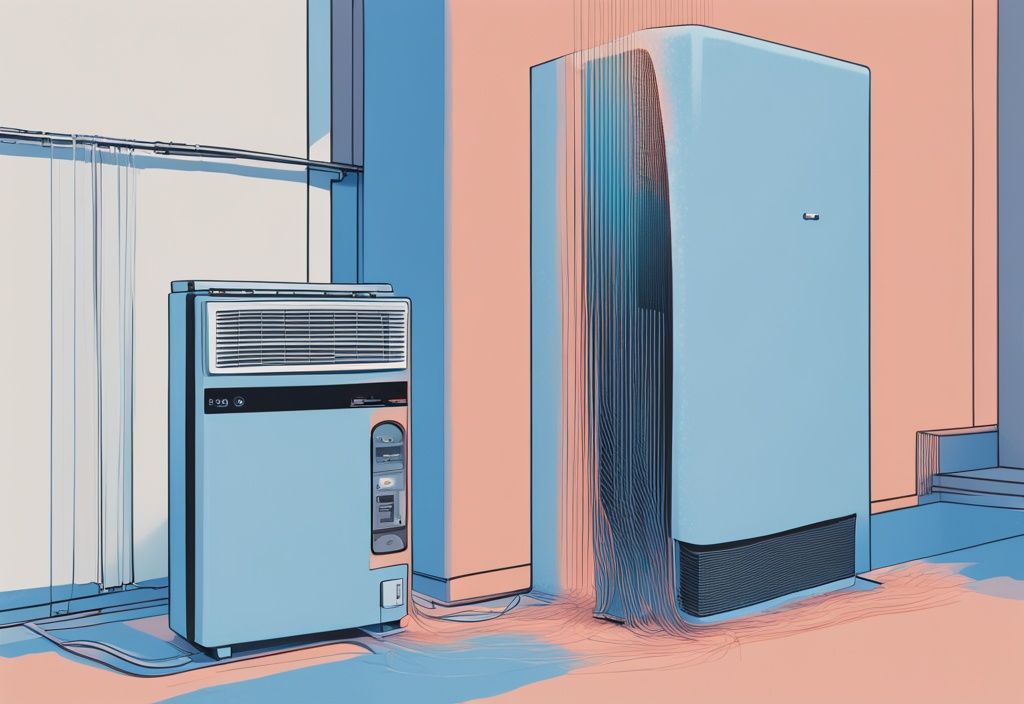
Annual Professional Maintenance Service
- Schedule annual servicing: Don’t underestimate the power of a good, thorough check-up. Having your split AC unit professionally serviced at least once a year can catch minor issues before they turn into big, noisy headaches. It’s a simple step that pays off in keeping your unit running quietly.
- Comprehensive component check: During professional servicing, every critical component gets the once-over. This ensures that everything is in tip-top shape, preventing unexpected noises from wear and tear. It’s like giving your AC a yearly tune-up to keep it humming along smoothly.
Importance of Regular Maintenance and Prompt Repairs
Maintaining your air conditioning unit isn’t just a luxury—it’s a necessity. Without regular check-ups and timely repairs, small problems can snowball into major headaches, especially when your split AC indoor unit starts making noise.
Benefits of Professional Maintenance
- Extends the lifespan of the AC unit: Regular check-ups and servicing by professionals ensure wear-and-tear issues are identified and rectified early, greatly prolonging the unit’s operational life. Think of it like taking your car in for an oil change; catching problems early keeps your AC running smoothly for years.
- Ensures all components are operating efficiently, minimizing noise: When your unit is well-maintained, it functions smoothly with minimal noise disturbances. It’s like a symphony that stays in tune. Regular maintenance catches potential issues before they can develop into noisier, more serious problems.
Addressing Misconceptions About AC Noises
- Not all noises are normal; some indicate underlying problems: Sure, some operational sounds are typical, but persistent noises can signal serious issues. It’s like a car making an unfamiliar noise—it could be nothing, or it could mean a trip to the mechanic is in order.
- Professional diagnosis is crucial to discern between normal operational sounds and significant issues: Experts can tell the difference between harmless noises and those that signal underlying problems. They’re like the doctors of the AC world, ensuring necessary repairs are promptly and accurately made.
Ensuring Efficient Performance and Minimizing Energy Consumption
- Regular maintenance helps in keeping the unit running efficiently: Scheduled inspections and cleanings prevent blockages and mechanical failures. Think of it as the difference between a well-oiled machine and a rusty old contraption. Regular maintenance keeps your system operating at peak efficiency.
- Reduces overall energy consumption, saving on utility bills: An efficiently running unit consumes less energy, translating to lower electricity bills. It’s kind of like getting better gas mileage on your car—you’re saving money and helping the environment while keeping your home cool and comfy.
Conclusion
- Understanding Noises: Identifying the various sounds that a split AC indoor unit makes is crucial for distinguishing between normal operational noise and potential issues needing professional attention. Imagine your AC’s noises as it trying to tell you something—like we’re deciphering a secret language of machines.
- Importance of Maintenance and Repairs: Regular maintenance and promptly addressing any irregularities in your AC unit’s noises are key in extending the life and improving the performance of your system. Think of it like giving your car a regular tune-up—catching the little things before they turn into costly repairs. This proactive care ensures minor problems don’t escalate into significant issues that could disrupt your comfort and lead to expensive fixes.
- Ensuring Comfort and Efficiency: Tackling noise-related problems early helps you avoid the frustration of unexpected breakdowns and keeps your home environment peaceful. Imagine coming home to a quiet, cool sanctuary instead of a noisy, inefficient unit driving up your energy bills. This proactive maintenance boosts the efficiency of your split AC unit, cutting down on energy usage and putting some extra savings in your pocket.
Being aware of what different noises mean and understanding when it’s time for a professional assessment can ensure your split AC indoor unit runs smoothly. In the long run, this results in a more comfortable and efficient home cooling experience.
FAQ
What Does It Mean If My Split AC Indoor Unit Is Making Banging Noises?
– Banging sounds typically indicate a problem with the compressor or loose parts inside. This issue usually requires a professional inspection and might even necessitate unit replacement to avoid further damage.
How Do I Fix a Screeching Noise in My Split AC Indoor Unit?
– Screeching noises often come from a malfunctioning fan motor or a worn-down fan belt. This isn’t something you want to ignore. Getting a technician to diagnose and fix the problem promptly can save you from more extensive and expensive damage.
Why Is My AC Making a Humming Noise?
– If your AC is giving off a humming noise, it’s likely due to a defective contactor relay switch. This should be inspected by a certified technician to avoid serious damage and to make sure your unit runs safely.
What Should I Do If My Split AC Is Buzzing?
– Buzzing sounds can stem from a few different issues—loose fan blades, a faulty outdoor fan motor, dirty condenser coils, or even a refrigerant leak. A professional tune-up is recommended to identify the cause and restore your AC’s normal functionality.
Is a Rattling Noise from My Split AC Indoor Unit Normal?
– Rattling noises are generally not normal. They could be caused by debris, loose parts, or a damaged blower wheel. Professional inspection and maintenance can sort out these noise issues effectively.
How Can I Prevent Noises From My Split AC Indoor Unit?
– Preventing noise issues is all about regular maintenance. Keeping filters clean, clearing debris from condenser coils, and scheduling an annual professional service can keep your AC running smoothly and silently.
When Should I Call a Professional About Noises From My Split AC?
– If you hear persistent or unusual noises like screeching, banging, or buzzing, it’s crucial to call a professional immediately. Early intervention can prevent further damage and ensure your unit continues to function efficiently.
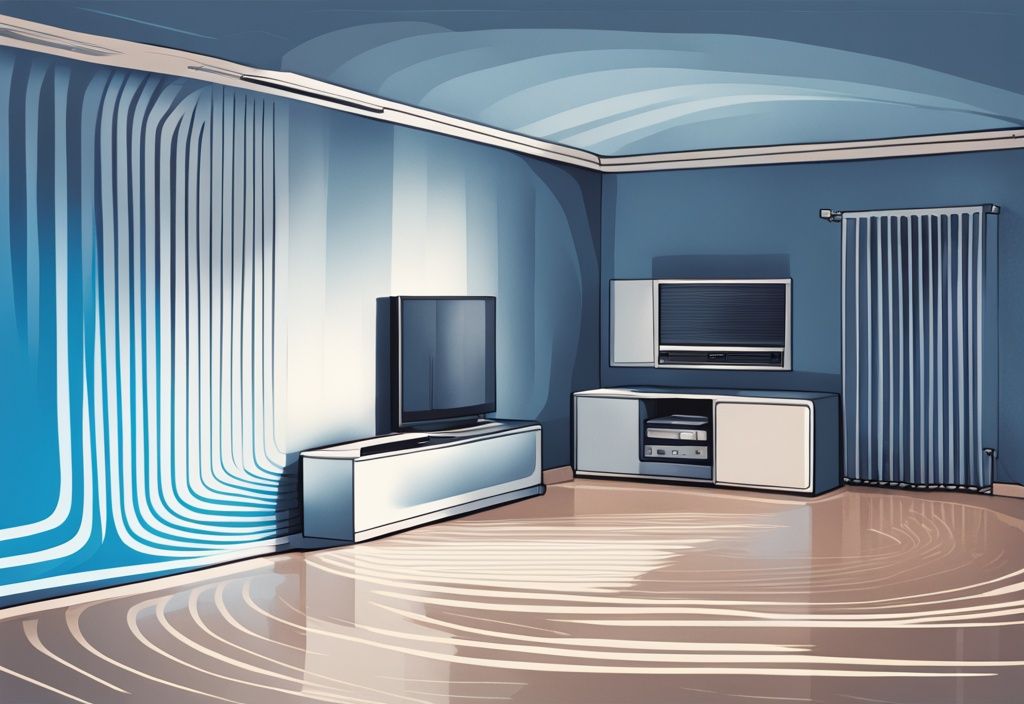
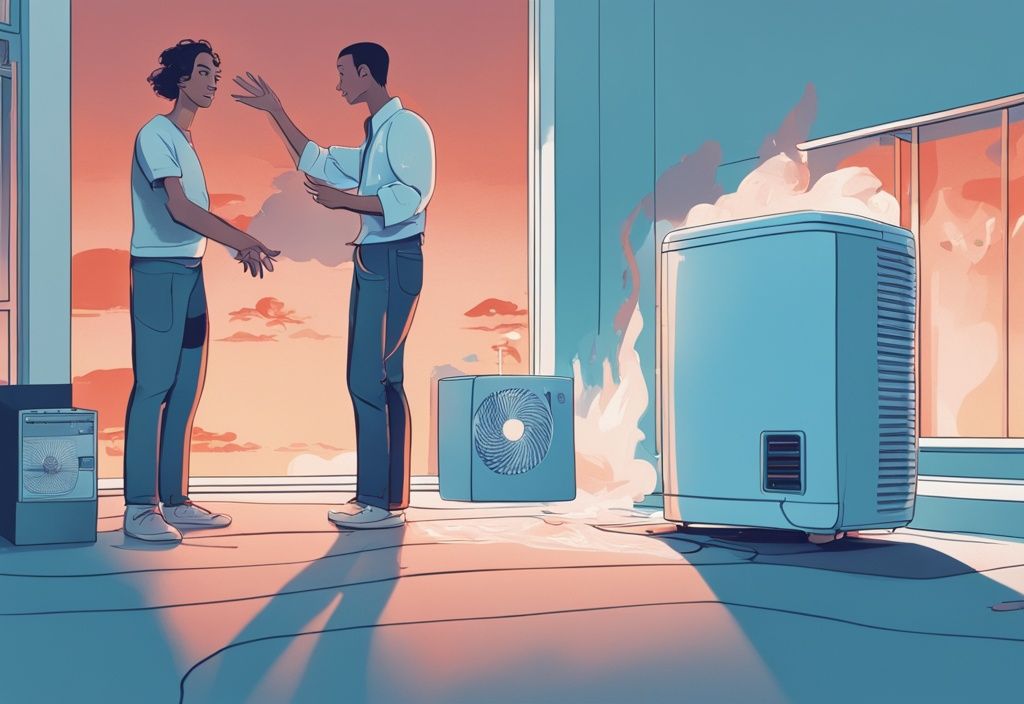
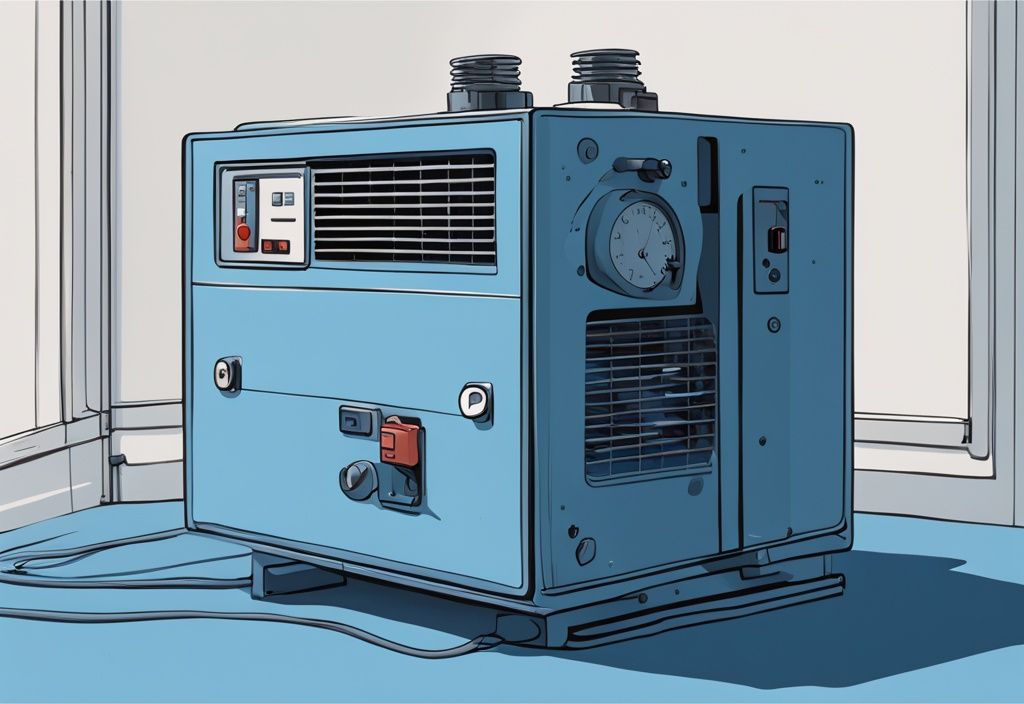
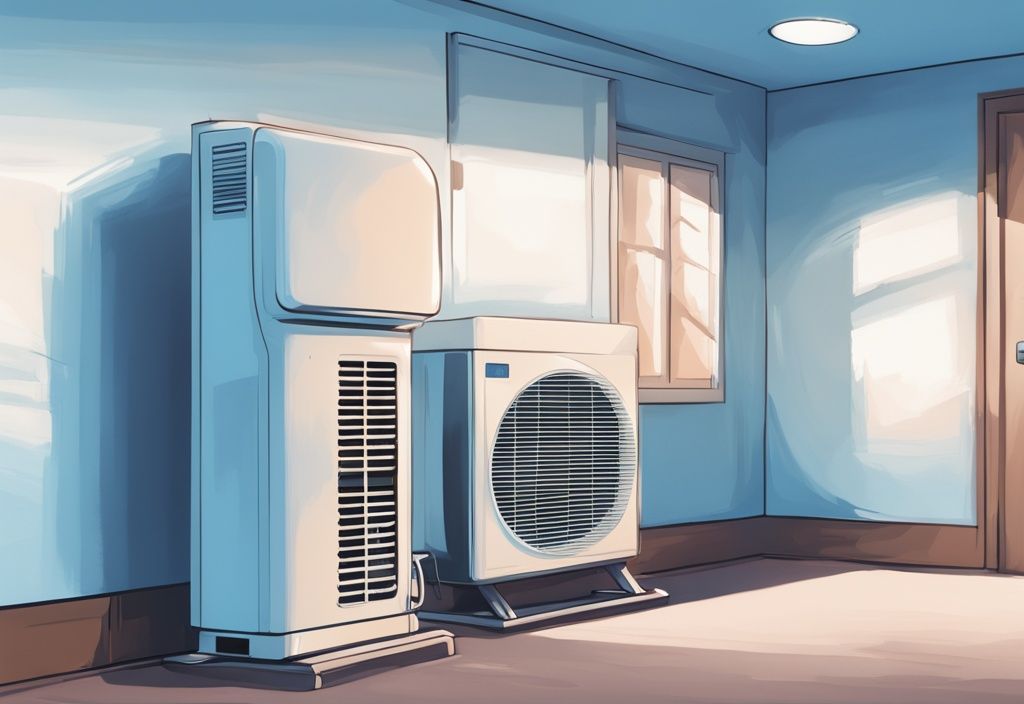
Post Comment